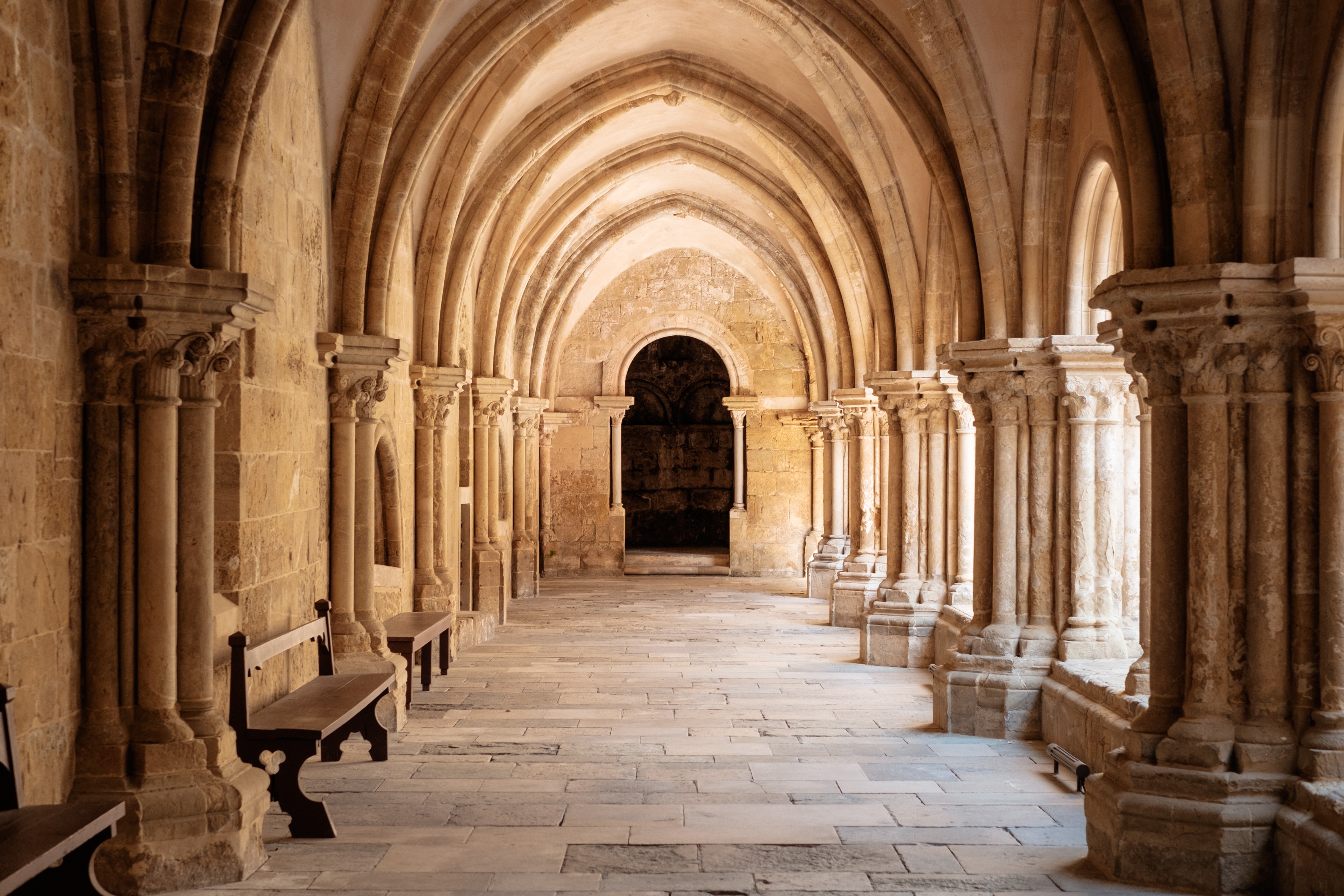We all love science because it explains to us the fundamental forces of life and then we can understand the world in a coherent way. Gravity causes objects to attract depending on their mass, and it works the same throughout the world. It might cause coconuts to fall off trees in the Caribbean and apples to fall of trees in Vermont but it is still just gravity. At one time, people might have thought that coconuts and apples fall for different reasons, but once we understood what gravity was and how it works, we were able to explain a whole host of phenomena all over the world, because we understood these processes on a fundamental level. We understood a basic and fundamental force of physics.
In the last essay, we started to present the basic principles Baha’u’llah revealed to help us understand religion. We reviewed how God is an Intelligence at the basis of everything we experience and upon which everything depends. “Religion” is the expression of the desire by humans to connect with that Ultimate Reality, and two of the main ways we do that is by trying to connect through nature or through internal explorations of our own selves, both of which reflect the revelation of God within them. We can see the expressions of this in the religions of the past, whether it is the “natural religions” of antiquity that saw the Divine in nature, or more recent religions that were more mystical and focused on finding the Divine within ourselves. From the perspective of Baha’u’llah, these approaches are both true expressions of humanity’s connection with God. In an illuminating passage, Baha’u’llah tell his followers to be guided by the “blessed words” that “All things are of God” and says that this “exalted utterance is like unto water for quenching the fire of hate and enmity which smolders in the breasts of men. By this single utterance, contending peoples and kindreds will attain the light of true unity”. God is universal and seeing the different expressions of religion in the world in a universal way is fundamental to creating unity among peoples.
We also noted however, that most people’s experience of God is mediated through revealed religion, based on the claim of an individual, like Christ, Muhammad, or Baha’u’llah himself, to represent God to humanity. This is where a lot of the confusion and conflict have arisen in religion, and also the part that seems the least coherent, as the followers of the great religions have often interpreted their revelations in mutually contradictory ways. The incoherence and disunity has led many thoughtful people to reject revealed religion and choose to see God as a more impersonal Force or abstract entity, if they believe in God at all. “Divine revelation” itself is increasingly seen as a relic of humanity’s past, relegated to an age when we believed in all kinds of supernatural entities, most of which have been debunked by science.
Baha’u’llah’s revelation impacts our consideration of these issues profoundly and adds a significant new factor to the whole equation. Most significantly, He has brought a new revelation, itself an incredible wellspring of beauty and truth. It might be appropriate to consider “divine revelation” a relic of the past when we are faced with claims that are at least 1400 years old, but if it has happened again, in the modern era, it clearly impacts how we think about the phenomenon of divine revelation itself.
Beyond that, Baha’u’llah has also explained the nature of revealed religion itself and made it coherent. In contrast to the often conflicting claims of its followers, Baha’u’llah has explained that all the revealed religions are actually part of one unfolding religion- “the changeless Faith of God”- that manifests itself to humanity based on different circumstances, but whose essence is One Reality. Speaking of the Founders of the great religions of humankind, He says-
Every one of them is the Way of God that connects this world with the realms above, and the Standard of His Truth unto every one in the kingdoms of earth and heaven. They are the Manifestations of God amidst men, the evidences of His Truth, and the signs of His glory.
The Manifestations of God have “appeared clothed in divers attire”, and if we “observe with discriminating eyes, thou wilt behold Them all abiding in the same tabernacle, soaring in the same heaven, seated upon the same throne, uttering the same speech, and proclaiming the same Faith.”
He termed this process of the Faith of God unfolding throughout history as “progressive revelation”:
Know thou assuredly that the essence of all the Prophets of God is one and the same. Their unity is absolute…They all have but one purpose; their secret is the same secret. To prefer one in honor to another, to exalt certain ones above the rest, is in no wise to be permitted. Every true Prophet hath regarded His Message as fundamentally the same as the Revelation of every other Prophet gone before.
A review of the world’s scriptures strongly supports the concept of “progressive revelation”. When Christ came into the world, He claimed to fulfill the past revelation of Moses, saying “If you had known Moses, you would know Me” and promised that one would come after Him- the “Spirit of Truth” who would “lead you into all Truth”. Muhammad recognized over two dozen previous revelations in the Quran, explaining that His revelation was part of one religion- “The same religion has He established for you as that which He enjoined on Noah…and that which We enjoined on Abraham, Moses, and Jesus: Namely, that ye should remain steadfast in religion, and make no divisions therein:…”
In the Bhagavad Gita, the Hindu masterpiece, whose origins are unknown but was recorded about 2500 years ago, the Lord Krishna says “Though myself unborn, undying, the lord of creatures, I fashion nature, which is mine, and I come into being… Whenever sacred duty decays and chaos prevails, then I create myself, to protect men of virtue, to set the standard of sacred duty, I appear in age after age…” Even in the teachings of Buddha, there is a dialogue about previous “Buddhas” whose “path” had been lost over time and he was renewing it.
Indeed, the concept of “progressive revelation” is a fundamental element of each of the world’s great scriptures, as each of the Manifestations of God explicitly framed their teachings as the next installment of the same religion that people had recognized in the past. In other words, God is not trying to trick us!
The problem is that the followers and religious leaders of these great religions have chosen not to accept any of the revelations that come after the Founder of their religion. Traditional Jewish belief is that God revealed Himself to the Jewish people but no claim to revelation after that is true. Christians believe Christ was the fulfillment of the promises of the Hebrew scripture, and that Christ will return, but only to save Christians who believed in his first revelation. Orthodox Muslim belief accepts all the Prophets that appeared before Islam, but teaches that Muhammad was the “Seal of the Prophets” and that God will not send another revelation to humanity. In other words, each of the great religions accepts all the revelations before theirs, but none after.
In place of the expectation of another revelation similar to the first, traditional religions have forecast a “time of the end”- an “apocalypse”, a “Day of Judgment”, a “Day of Resurrection”- when believers will be rewarded and non-believers punished, usually presented as an other-worldly event that would suspend the laws of nature. The major challenge to this traditional religious worldview is that people have been forecasting such an event for thousands of years and nothing like it has actually occurred. As the centuries march on, it seems more and more like a fantasy. Most people, even most religious people, no longer believe in these ideas at all- but where does that leave traditional religion? For many people, it leaves them with theologies that no longer seem relevant to the modern world.
Baha’u’llah’s revelation was preceded by the claims of a young Prophet known as the Bab, who proclaimed a new religion within a Muslim society and prepared the way for Baha’u’llah. The Bab deals with these issues directly and pointedly throughout His writings. He taught that progressive revelation was a natural process, that the “Day of Resurrection” was a “day on which the sun rises and sets like any other” and that the descriptions in the scriptures for the “end of time” are metaphorical and represent the spiritual impact of a new Revelation upon human hearts.
“…What is intended by the Day of Resurrection is the Day of the appearance of the Tree of divine Reality (a new Manifestation of God), but it is not seen that anyone of the followers .. hath understood the meaning of the Day of Resurrection; rather have they fancifully imagined a thing which with God hath no reality. In the estimation of God…, what is meant by the Day of Resurrection is this, that from the time of the appearance of Him Who is the Tree of divine Reality, at whatever period and under whatever name, until the moment of His disappearance, is the Day of Resurrection. For example, from the inception of the mission of Jesus..till the day of His ascension was the Resurrection of Moses.”
So the “end of times” is only the end of a religious era. It is a “Day of judgment” on old ideas that no longer meet humanity’s needs, and a “Day of resurrection” as a new Revelation has come into the world to revive human hearts and provide a path back to God after it has been lost. “Resurrection” is like the springtime, when the flowers spring from the ground announcing that a new energy has been infused into all reality. In a wonderful Tablet, God speaks directly to Baha’u’llah- His “Pen”- announcing the Divine Springtime has arrived-
The Divine Springtime is come, O Most Exalted Pen, for the Festival of the All-Merciful is fast approaching. Bestir thyself, and magnify, before the entire creation, the name of God, and celebrate His praise, in such wise that all created things may be regenerated and made new.
The Bab explains that people often miss the significance of a new revelation because they judge it by their own standards-
“Since all men have issued forth from the shadow of the signs of His Divinity and Lordship, they always tend to take a path lofty and high. And because they are bereft of a discerning eye to recognize their Beloved, they fall short of their duty to manifest meekness and humility towards Him. Nevertheless, from the beginning of their lives till the end thereof, in conformity with the laws established in the previous religion, they worship God, piously adore Him and bow themselves before His Divine Reality…At the hour of His Manifestation, however, they all turn their gaze towards themselves and thus are shut out from Him, inasmuch as they fancifully regard Him as one like unto themselves. Far from the glory of God is such a comparison! Indeed the august Being resembles the sun. His verses are like its rays, and all believers, should they truly believe in Him, are as mirrors wherein the sun is reflected. Their light is thus a mere reflection.”
The Bab frequently used the metaphor of the rising and setting of the sun for the revelations of God coming to humanity, saying further that “were the risings of the sun to continue till the end that hath no end, yet there hath not been nor will there ever be more than one sun…”. The Bab connected the revelations of God to the natural world saying- “The process of His (God’s) creation hath had no beginning and can have no end, otherwise it would necessitate the cessation of His celestial grace.” Just as the natural world is always in motion, creative and evolutionary, revelations were also a natural process and that “God hath raised up Prophets and revealed Books as numerous as the creatures of the world, and will continue to do so to everlasting” as humanity’s knowledge of God always evolves.
He referred to the time a Manifestation was alive on earth as the “day of God”, whereas the time between the revelations was like the “night”, saying that religious leaders were like stars who shine during the night but should “fade into utter nothingness before the dazzling splendor of the Sun” when a new Revelation comes. Unfortunately, it was often religious leaders who most persecuted the new Manifestation, led people astray, and deprived them of the bounties of the new religion. According to the Bab, it was because people worshipped the outer form of the religion and fail to seek the inner essence of faith, the part that is renewed in each new revelation. “By adhering unto forms”, He said, people “deprive themselves of the good pleasure of their Lord.”
As the passage states above, it is also because people are trying to do the right thing, to “take a path lofty and high”, to protect what they consider sacred, that they “fancifully regard” the new Manifestation as “one like unto themselves”. Baha’u’llah, in another passage, points out further why a new revelation is such a challenge to accept for people who are committed to their religion. “Consider how men for generation have been blindly imitating their fathers, and have been trained according to such ways and manners as have been laid down by the dictates of their Faith. Were these men to discover that suddenly, a man, who has been living in their midst, who with respect to every human limitation hath been their equal, had arisen to abolish every established principle imposed by their faith- principles by which for centuries they have been disciplined- they would of a certainty be veiled and hindered from acknowledging this truth”. After centuries of belief, the Manifestations become almost mythical, and we forget that they were actually people who lived real lives and, if they came again, and passed us on the street, they would look the same as everyone else.
It is these kind of challenges that have made it difficult for people to see the revelations of God as part of one process. Even though they are like us, the Manifestations of God are not just human beings. What makes them special is not their outer physical appearance but their inner spiritual reality and the words they speak to attract our hearts. They represent God to humanity and have an essence that it is transcendent. As the passage states above, their inner reality is the Sun of Truth in relation to us, providing spiritual teachings that provide for our growth and well-being just like the physical sun is the source of life for the planet.
Similar to gravity, which is a fundamental force that manifests itself in various ways by acting on different objects, the revelations of God are also the manifestation of a single Force. Describing that Force in abstract terms can get pretty philosophical, but it’s worth connecting the dots because it is intellectually and spiritually illuminating. If we go back to our analogy of the painting, with God being the painter, we can think of the inner essence of each of the Manifestations- the Reality that is common to each of them- as being like the paintbrush. It is the aspect of God that acts in the world, the part that we see most clearly. We can’t see into the mind of the painter, but we see her brush.
The Bab had a name for this force, the “paintbrush” that acts in the “painting” that is the world we live in. He called it the “Primal Will’ of God- “primal” in the sense of “first”- as in there is nothing more fundamental to it except the Essence of God, which is unknowable. He said that it is the Primal Will that “appears resplendent in every Prophet and speaks forth in every revealed book” stating further that it “knows no beginning” inasmuch as even the very idea of “firstness” owes it existence to it, and “knoweth no end, for the Last owes its lastness unto It.” The creativity in nature is also fundamentally an expression of the effects of the Will. From the perspective of those living in the painting, the paintbrush is how we experience God. It is God to us, so the inner aspect of the Messengers of God is our true Beloved. It is in this sense that Baha’u’llah states about His own Revelation-
Naught is seen in My temple but the Temple of God, and in My beauty but His Beauty, and in My being but His Being, and in My self but His Self, and in My movement but His Movement, and in My acquiescence but His Acquiescence, and in My pen but His Pen, the Mighty, the All-Praised. There hath not been in My soul but the Truth, and in Myself naught could be seen but God.
For those familiar with Christian theology, the “Primal Will of God” is the same as the “Logos” or “Word of God”, as in the first paragraph of the Gospel of John- “In the beginning was the Word, and the Word was with God, and the Word was God. He was with God in the beginning. Through him all things were made; without him nothing was made that has been made. In him was life, and that life was the light of all mankind…The Word became flesh and made his dwelling among us. We have seen his glory, the glory of the one and only Son, who came from the Father, full of grace and truth.”
Baha’u’llah also uses the term “Word of God” to describe the same reality, stating that “The Word of God is the king of words and its pervasive influence is incalculable. It hath ever dominated and will continue to dominate the realm of being… It is an ocean inexhaustible in riches, comprehending all things. Every thing which can be perceived is but an emanation therefrom.” To go back to our analogy, everything in the painting is an emanation of the painters mind and the paintbrush that forms it
Not only is the divine revelation in its essence the expression of the Will of God, nature’s laws are also an expression of it. Both are natural in the truest sense of the word. It is these connections that the Bab and Baha’u’llah make that allow us to see divine revelation and the creative energies in nature as part of one singular reality, connecting our outer lives with our inner lives in a profound and intensely beautiful way. It is the foundation of the true harmony between the different revelations that have come to humanity, and also between science and religion, as all are fundamentally expressions of the same metaphysical Force. When we turn with our minds to studying the natural world, we are studying the Will of God as expressed in nature, and when we turn our hearts to the Word of God as expressed in each of the revelations, we are experiencing the same reality from a different part of our being.
So if all the revelations of God are in essence the expressions of a single transcendent reality, why do they differ one from another? Why are the laws that the Manifestations of God revealed different? Why do they use different theological concepts to explain their teachings, some of them even seemingly contradictory to each other?
Having reviewed the fundamental unity among the revelations of God in part 1 of this essay, part 2 will discuss why they are different and how those differences can be accommodated within a common framework.
Photo by Janus Clemmensen on Unsplash






